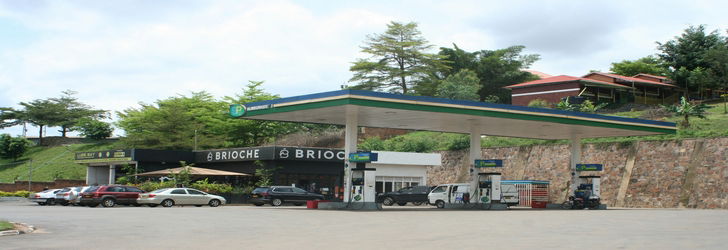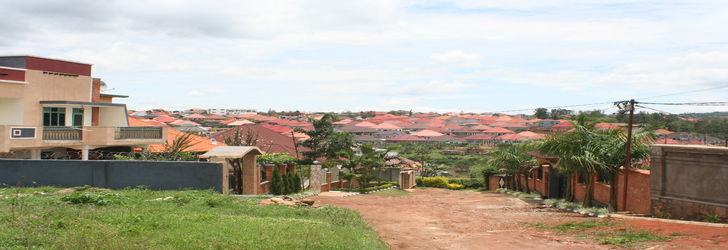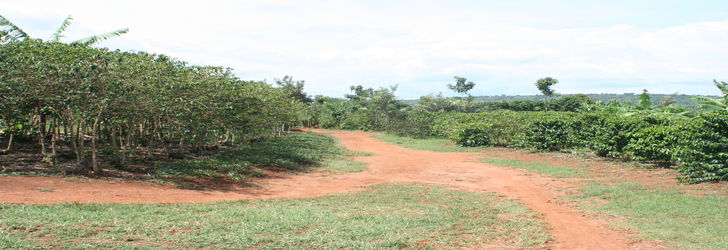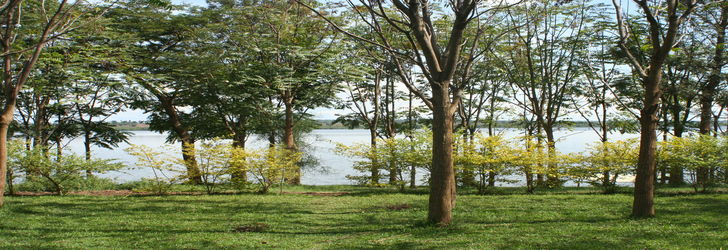Lake Mugesera Getaway
A few years ago, I spent a night at Saint Joseph’s Guest House in Ngoma District. When I woke up in the morning, I had breakfast and hit the road. My destination was supposed to be Lake Mugesera. Unfortunately, a wrong turn somewhere led me to the wrong lake, Lake Sake.
I had a good time at Lake Sake. Good enough to ditch my initial plan. From Sake, I crossed Akagera River and proceeded to Lake Gashora via Lake Birara. I wanted to have lunch at La Palisse Hotel Gashora. Little did I know that, at the time, access to La Palisse was restricted to residents only. The entire property was occupied by the team assembled to build the Bugesera International Airport.
In a bid to find an alternative lunch break venue, I headed to Lake Mirayi. Upon arrival, I was offered free lunch and much more, courtesy of Bugesera Beach Hotel. When I finally left for Kigali, I had stepped on the banks of four lakes, none of which was on my itinerary.
Three years down the line, I decided to make the Mugesera trip happen. Before leaving Kigali, I changed engine oil and filled up the tank at SP Kanombe gas station. Then I grabbed breakfast from Brioche. The establishment encompasses a service bay and a café, making it a one-stop-center for travelers.

SP Kanombe Petrol Station
Lake Mugesera covers an area of 40 km². Its offshoots spread far and wide in parts of Ngoma, Bugesera, and Rwamagana. From Kigali, the closest and most easily accessible part of the lake is in Karenge Sector, Rwamagana District. That’s the area I chose to visit.
I didn’t know what to expect. I wasn’t even sure I would find a place to quench my thirst at the lake I was about to see for the first time. To be safe, I packed some snacks and refreshments. Other than the temporarily closed Franternitas Garden, I didn’t see any accommodation or recreational facilities on the map. Unlike Kivu, Muhazi, Ruhondo, Burera, Gashora, Ihema, and other popular lakes, Mugesera is relatively unknown.
As I rode through Kabuga, I was amazed by the rapid transformation of the suburb. When I made it to Rugende, I branched off the Kigali - Kayonza highway and proceeded to Karenge via Muyumbu. Although found within the Rwamagana administrative area, Muyumbu is attracting a lot of people who work in Kigali.

New settlements in Kabuga suburb
New settlements are forming a rapidly expanding radius around Kigali, breaking administrative boundaries. Investment in real estate in the greater Kigali area is stimulated by seamless connectivity in terms of infrastructure and technology.
Beyond Muyumbu, I was in a completely new territory. The Muyumbu - Karenge road is not tarmacked, but not as bad as I thought. The 25-kilometer stretch slashes through markets, mining concessions, schools, churches, and farms.
Speaking of farms, I noticed that coffee has become a popular crop in the area. This cash crop generates foreign currency and injects liquidity into the rural economy. Currently, Rwandans are producing 20,000 to 22,000 metric tons of coffee annually. From the look of things, those numbers are likely to increase significantly in the near future.
At some point, I deviated from the main road and explored a network of trails around coffee fields. Coffee is a relatively new crop in the area. Some farmers have not yet seen their first harvest, but they are excited about the prospects of their new venture. Gerald Mugisha started growing coffee two years ago. Despite his lack of experience in the subsector, he is optimistic. "Coffee will undoubtedly reduce my cash flow problems." He told me.

Trails in the middle of Karenge coffee farms
The commercial street of Karenge was busy. Apart from retail and wholesale shops, the village has attracted dealerships, insurance brokerage firms, and branches of financial institutions. In addition, Karenge Market attracts numerous traders and shoppers twice a week. At the market, I bought some fruits in anticipation of a possible camping escapade.
As I approached the lake, gleams of sunshine on the gentle waves warmly welcomed me. The first thing I saw was a retreat center under construction. Next to the construction site, I found Ipide Lodge. The small waterfront nest has three guest cabins and a restaurant/bar.
I had lunch in the beautiful garden underneath a canopy of trees. The tranquility and peace of mind experienced here are otherworldly. Apart from accommodation and meals, Ipide Lodge offers guided boating and walking tours.
Later on, I took a walk along the shoreline and felt the invigorating effect of the cool breeze from the lake. One step after another, I listened to the soothing sounds of the birds inhabiting the bank of Lake Mugesera.

Ipide Lodge's garden